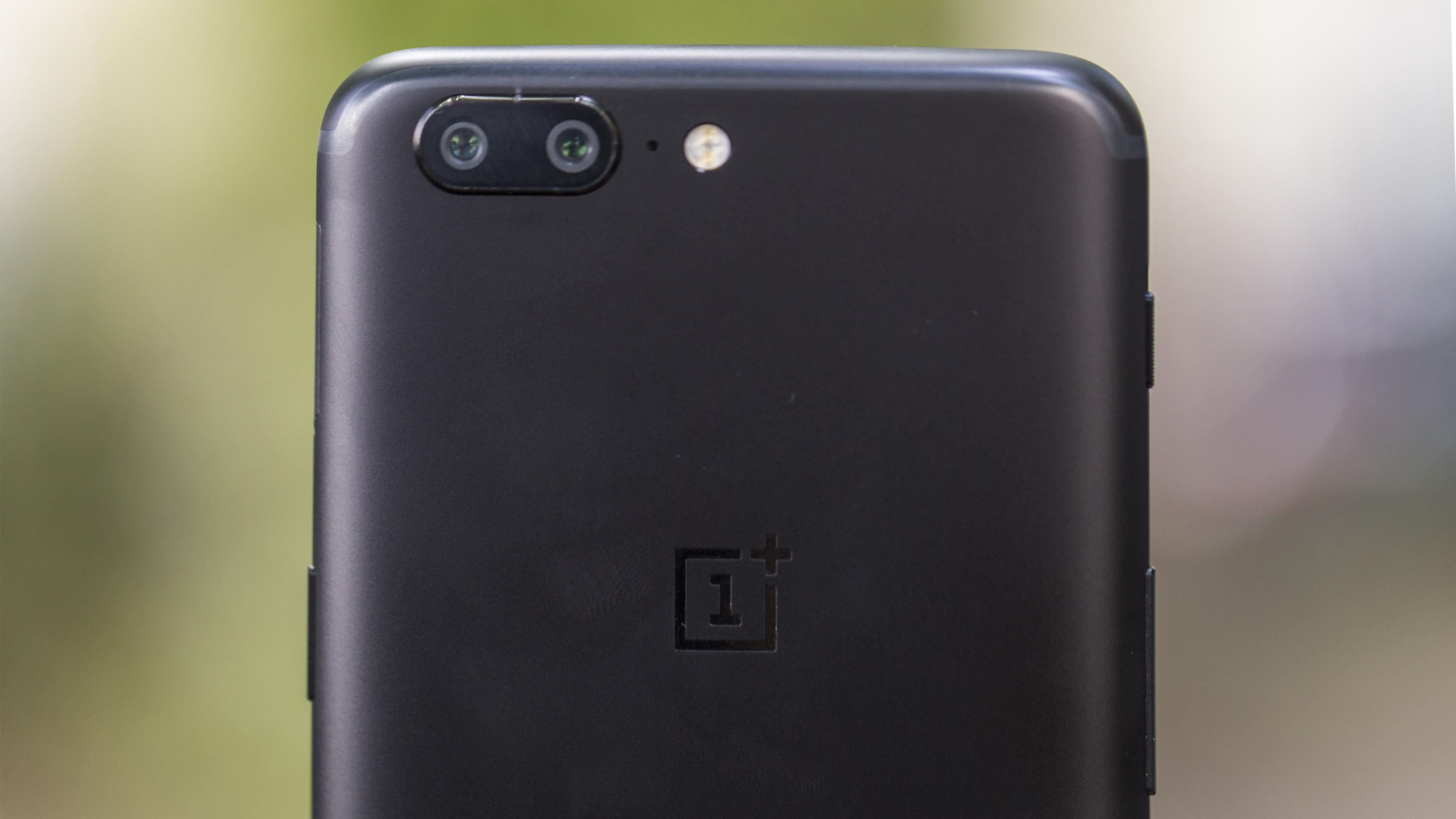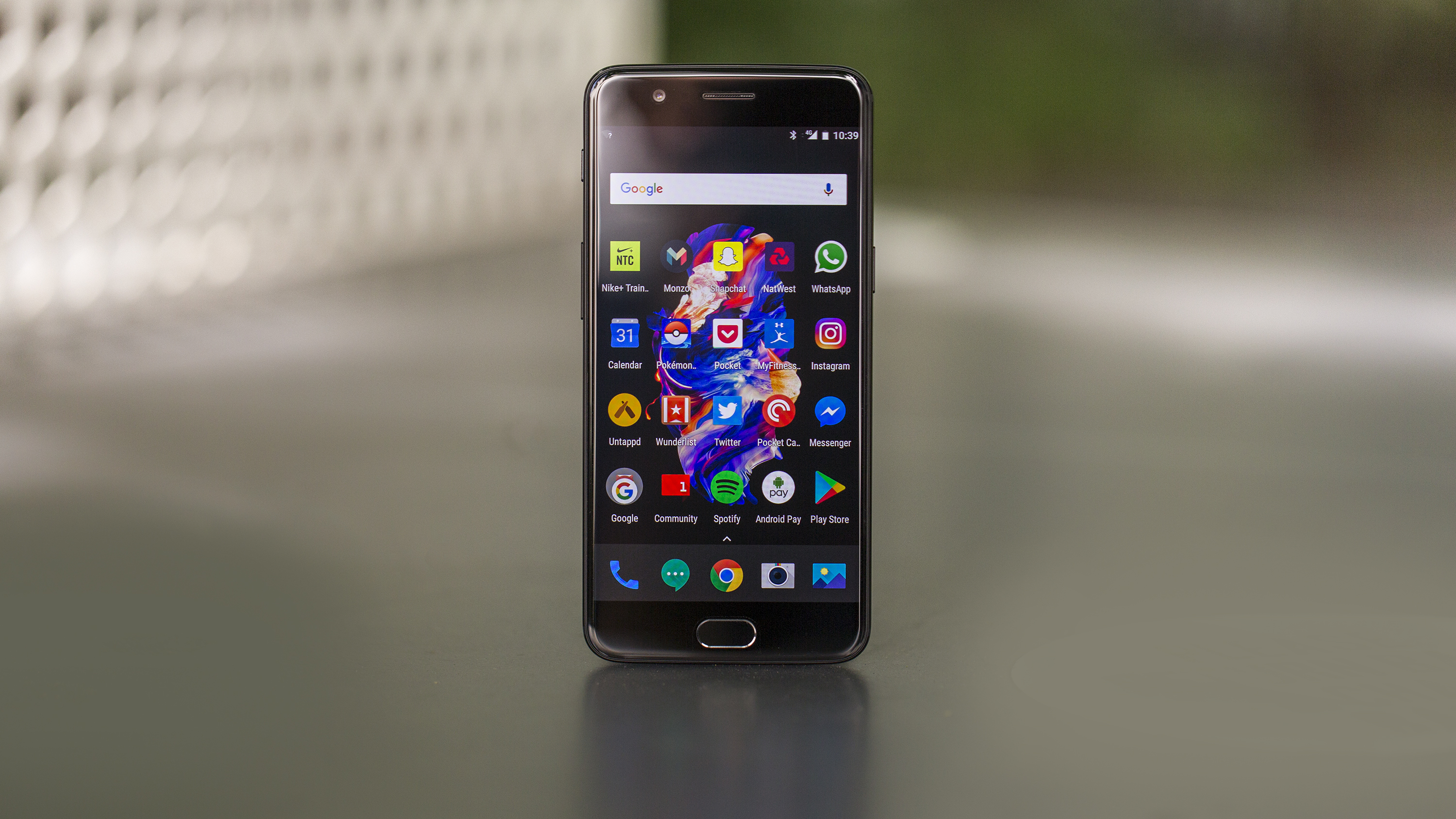Honor 9 vs OnePlus 5
Battle of the affordable flagships

The Honor 9 is here, offering high-end specs for a little less cash - but it's not the only affordable flagship phone vying for your hard-earned cash.
The OnePlus 5 is also here, offering slightly better specs for slightly more cash, but also undercutting the entrenched flagship ranges from Samsung and Apple quite significantly.
With both on the market fighting it out to be the best device with a mid-range price, which one will be the best for you?
Honor 9 vs OnePlus 5 price

The Honor 9 will be available for £379.99 (around $480, AU$630), while the OnePlus 5 starts at $479/£449 (around AU$630).
So, the OnePlus 5 costs about £70 more in the UK, which is a significant amount – and the price goes up to $539/£499 (around AU$710) if you want 128GB of storage and 8GB of RAM.
If those Honor 9 price conversions hold up then there might not be as much difference in the US or Australia, but we’d still expect the OnePlus 5 will be the more expensive phone.
Honor 9 vs OnePlus 5 design

The Honor 9 has a striking design that's unlike most other phones, with a glass back that uses 15 layers of various materials, causing light to reflect off it at various angles for an aurora-like effect.
Get daily insight, inspiration and deals in your inbox
Sign up for breaking news, reviews, opinion, top tech deals, and more.
The phone has a metal frame to finish off its high-end look and comes in at 147.3 x 70.9 x 7.45mm and 155g, with a Glacier Grey, Sapphire Blue or Midnight Black color scheme.
The OnePlus 5 meanwhile has a slightly more conventional design – and one which seems more than a little inspired by the iPhone 7 Plus, but it’s no less expensive-looking.
It has a slightly rounded metal body with almost invisible antenna bands along the top and bottom. Coming in Slate Grey or Midnight Black, the OnePlus 5 is 154.2 x 74.1 x 7.3mm and 153g, making it a bit longer and wider than the Honor 9, but slightly slimmer and almost exactly the same weight.
Check out the Honor 9 in more detail with our hands on video below.
Honor 9 vs OnePlus 5 display

The Honor 9 has a 5.15-inch 1080 x 1920 display, while the OnePlus 5 has a 5.5-inch 1080 x 1920 offering.
So, the screen on the OnePlus 5 is significantly larger, but as it’s the same resolution it’s also slightly less sharp, coming in at 401ppi (pixels per inch), while the Honor 9 is 428ppi.
That’s not a difference you’re likely to notice much, so it mostly just comes down to whether you want a big phone or a small one, but it is also worth noting that the OnePlus 5 has an AMOLED display, which allows for true blacks and generally great looking dark tones.
The Honor 9 uses a more conventional LCD and probably won’t display blacks as well, but we'll need to give it a full review before making any definitive claims over which is better.
OS and power

Both of these phones punch above their price tag when it comes to chipset and RAM. The Honor 9 uses an octa-core Kirin 960 chipset with four cores clocked at 2.4GHz and four at 1.8GHz.
That’s a flagship chip, albeit not one of the more mainstream ones, and it’s paired with either 4GB or 6GB of RAM – though note that the 6GB variant won’t be available in all regions.
The OnePlus 5 on the other hand has an octa-core Snapdragon 835 chipset. That’s the same as is used by the likes of the HTC U11 and some models of the Samsung Galaxy S8, and it has four cores clocked at 2.45GHz and four running at 1.9GHz.
The OnePlus 5 also takes RAM to ludicrous levels, with a choice of 6GB or 8GB built in.
On paper it’s a more powerful phone than the Honor 9 then, or just about any other handset, but neither of them should be lacking for power.
The two phones also have different storage capacities. The Honor 9 comes with 64GB or 128GB of internal memory and a microSD card slot, and the OnePlus 5 comes with either 64GB or 128GB but no option for expansion.
As for the operating system, both phones run Android Nougat, but they also both have their own overlay on top.
The Honor 9 uses Emotion UI 5.1, which could put off some users, as Emotion UI is a heavy skin, far removed from stock Android.
However, our biggest complaint about Emotion UI in the past was the lack of an app drawer, and that’s been added in this version.
The OnePlus 5 meanwhile uses OxygenOS, which is a lot lighter as an overlay than Emotion UI. If you want an intuitive interface that’s close to how Google intended Android to be, the OnePlus 5 is the phone to go for out of these two.
Camera and battery

Both the Honor 9 and OnePlus 5 have dual-lens cameras, but that extra lens serves different purposes on each handset.
The Honor 9 has a 12MP color lens and a 20MP monochrome one, and it can combine image data from the two for potentially better, more detailed shots. Alternatively, you can use the monochrome lens on its own for a true black and white shot or a bokeh, blurred background effect.
The OnePlus 5 on the other hand has a 16MP and 20MP pairing. Both lenses are color in this case, but they allow for 'lossless' zoom, or for a bokeh effect, where the background of an image is blurred while the subject stays in focus.
There’s less difference in video, with both phones shooting in up to 4K quality, while around the front the Honor 9 has an 8MP selfie snapper and the OnePlus 5 has a 16MP one.
As for battery, you get a 3,300mAh power pack in the OnePlus 5 and 3,200mAh in the Honor 9, and both phones support fast charging.
Takeaway

The Honor 9 and OnePlus 5 could go down as two of the biggest flagship bargains of 2017, but there’s plenty to choose between them.
The Honor 9 is cheaper, smaller and likely slightly less powerful, with a different dual-lens camera setup and a striking glass build.
The OnePlus 5 meanwhile is bigger, metal-clad and packs in more power, but at a higher price.
So it depends what you consider is the right choice for you based on what you value in a phone – but make sure to check out our reviews before picking up either of them.
- The iPhone 8 could be the dual-lens phone to beat.
James is a freelance phones, tablets and wearables writer and sub-editor at TechRadar. He has a love for everything ‘smart’, from watches to lights, and can often be found arguing with AI assistants or drowning in the latest apps. James also contributes to 3G.co.uk, 4G.co.uk and 5G.co.uk and has written for T3, Digital Camera World, Clarity Media and others, with work on the web, in print and on TV.